As her 62nd birthday approaches on Saturday, Brigitte Bardot is about to reveal the full misery and the rare joys of being the most famous Frenchwoman since Joan of Arc.
Her autobiography - Initiales BB - threatens to claim a record for cinema world heartbreaks and attempted suicides.
The book, inspired by a song written by a former lover, the musician Serge Gainsbourg, will be released in France and Germany this week during a publicity extravaganza which includes an entire night of television interviews and film re-runs.
The cinema-going public will adore her for her demolition of co-stars such as Alain Delon and Sacha Distel, and weep over the unhappiness of innumerable affairs. However, the former actress could cause repulsion by her warm support for the racist French politician Jean-Marie Le Pen.
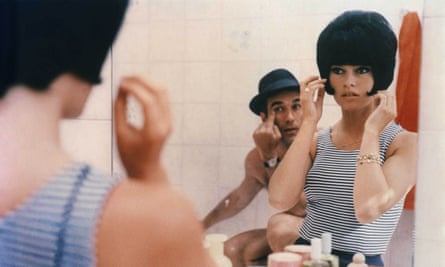
BB, who is married to one of Mr Le Pen’s aides, has not appeared in a film since she retired at 40 to set up an animal rights foundation. She has spent much of the last 21 years putting together her own story as a reply to ‘all the rubbish that has been written about me’.
In her pre-publication build-up, BB has lost none of the art of being the century’s greatest tease, announcing that she has been ‘conned, manipulated and abused’. The management of guarded interviews, spontaneous comments and leaked snippets from the autobiography, published in France by Grasset, has been better scripted than most of her films.
‘I am very afraid of the impact,’ she said yesterday. ‘This is more stressful than a first film. My life has been a succession of brief moments of joy and terrible trials. With me, life is made up only of the best and the worst, of love and hate. Everything that happened to me was excessive. In this book, I have stripped myself bare.’
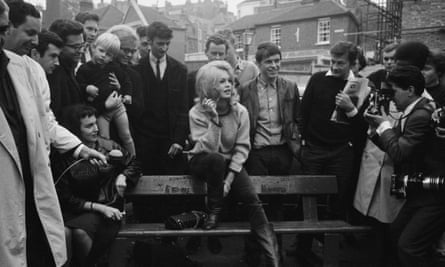
The image is entirely in keeping with the semi-naked femme-enfant temptress of Roger Vadim’s 1956 film Et Dieu Créa la Femme (And God Created Woman). First leaks of the text allude to alcohol abuse, self-destructive depression and a cinematic form of nymphomania in which the actress falls in love with her leading men from the first screen embrace.
‘When you live such intense moments as I have done there is always a bill to pay,’ she said, revealing that just before she retired she drank two bottles of champagne and three bottles of wine a day.
Referring to suicide attempts when she cut her wrists, took sleeping pills and tried to gas herself, she said: ‘You cannot escape the distress which follows great happiness.’
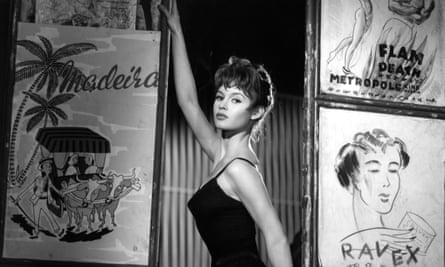
Her book tells of lovers who beat her, betrayed her and exploited her because she was naive and vulnerable. They treated her as a slut and a prostitute. Her upbringing in a strict Parisian bourgeois family, who hoped she would become a ballet dancer, did not prepare her for her meeting with Vadim, her first husband, who turned her into a universal sexual fantasy.
She was 14 when they met, and he was a Paris Match photographer covering the moral liberation movement in Saint-Germain-des-Prés that brought together an intellectual elite, led by Jean-Paul Sartre and Simone de Beauvoir, and a mass of popular talent including the actress Juliette Gréco and the writer Françoise Sagan.
The best known of her lovers were cinema stars such as Jean-Louis Trintignant and Warren Beatty. She neglected her only child, Nicholas, by the actor Jacques Charrier, and describes pregnancy as ‘the punishment of God’. She found the film world boring and felt satisfaction only when filming ended.
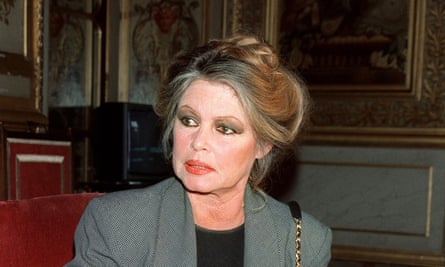
‘The madness which surrounded me always seemed unreal,’ she recalls. ‘I was never really prepared for the life of a star. I’m happier in my routine life today than when I was chased after by 100 photographers.’
She has deliberately destroyed her image as a sex symbol by refusing cosmetic surgery, dressing badly and, after giving away her Saint Tropez villa to her foundation, living in a small house surrounded by rescued animals, a rusty Renault 4L and a broken down Range Rover.
‘You mustn’t think I am dissatisfied,’ she said. ‘That would be a form of bitterness. My life is now what I always wanted - what I dreamed about subconsciously.’
This is an edited extract, click to read more
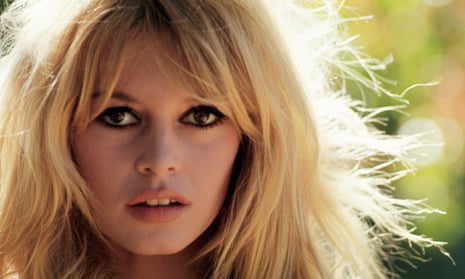
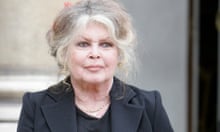
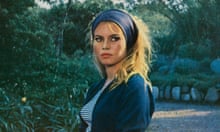
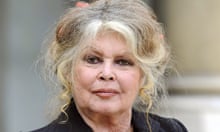
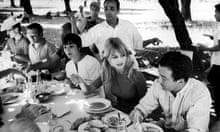
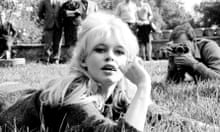

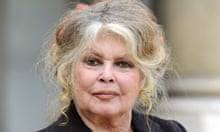
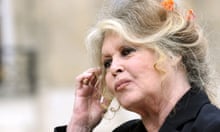
Comments (…)
Sign in or create your Guardian account to join the discussion